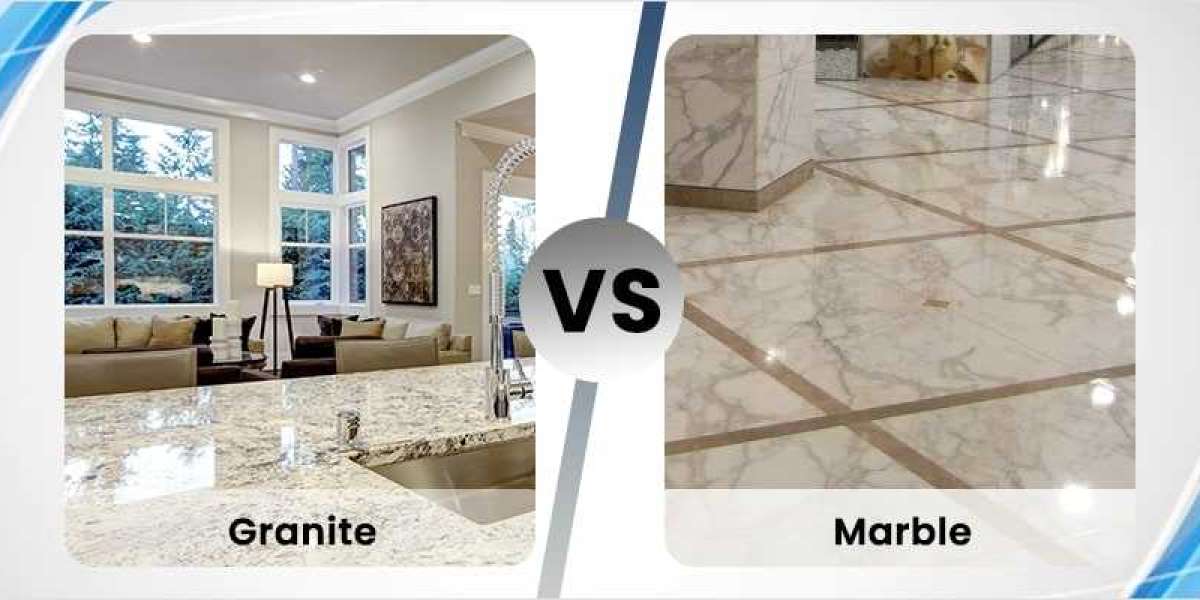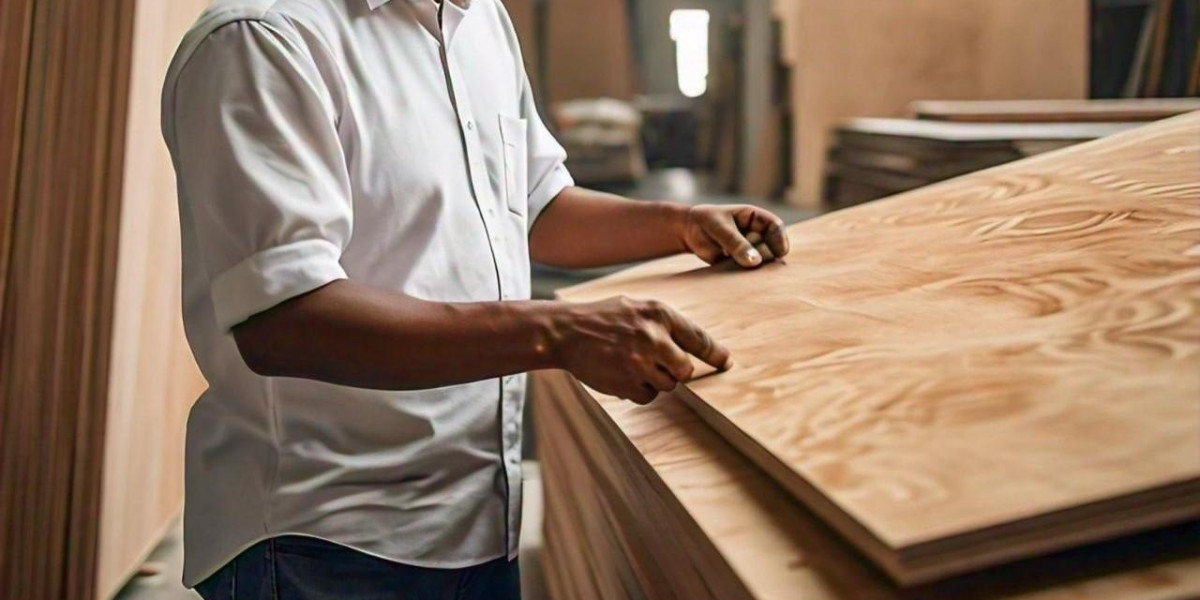When deciding between granite and marble for flooring, homeowners are often swayed by the luxurious appeal and natural beauty these stones bring to any space. However, one of the critical considerations is how easy it is to maintain these surfaces over time. While both granite and marble are known for their elegance and durability, the maintenance requirements of each differ significantly. In this article, we will explore how granite flooring compares to marble in terms of maintenance, addressing aspects such as cleaning, sealing, durability, and overall longevity.
1. Composition and Durability
Before diving into maintenance, it’s essential to understand the inherent properties of both granite and marble, as these significantly affect their care.
Granite is an igneous rock formed from molten lava that cools and crystallizes over time. This process makes granite extremely hard and durable. In fact, granite ranks 6-7 on the Mohs hardness scale, which means it is resistant to most scratches and abrasions. Its dense composition also makes it resistant to moisture and stains, contributing to its relatively easy maintenance.
Marble, on the other hand, is a metamorphic rock composed mainly of calcite, a much softer mineral. With a Mohs hardness rating of about 3-5, marble is significantly more porous and prone to damage compared to granite. Its softer nature makes it more susceptible to scratches, etching, and stains from acidic substances like vinegar, lemon juice, and even certain cleaners.
2. Daily Cleaning and Care
One of the primary maintenance concerns for any type of flooring is how easy it is to clean on a daily basis.
Granite flooring is relatively easy to clean. Due to its dense, non-porous surface, a simple damp mop or microfiber cloth is usually sufficient for removing dust and dirt. Additionally, granite does not require any special cleaning agents, and non-abrasive, pH-neutral cleaners work best to keep it looking fresh. Because it is moisture-resistant, there is little concern about water damage as long as spills are wiped up promptly.
Marble flooring, however, requires more attention when it comes to daily cleaning. Marble is highly porous and more sensitive to acidic or alkaline substances, which can cause etching—dull spots that occur when the surface is chemically eroded. Therefore, it’s crucial to use only pH-neutral cleaners on marble surfaces to avoid damage. Additionally, frequent cleaning is necessary to prevent dirt and debris from causing scratches on the softer stone. For these reasons, marble flooring requires more diligence and care in everyday cleaning compared to granite.
3. Sealing Requirements
Sealing is a critical part of maintaining both granite and marble flooring, but the frequency and complexity of this task can vary between the two stones.
Granite flooring generally needs to be sealed once every 1-3 years, depending on the type of granite and the amount of foot traffic the area receives. Because granite is less porous than marble, it doesn’t absorb liquids as readily, making the sealing process less urgent. In fact, many homeowners find that some granite surfaces can go longer periods without needing to be resealed, especially if the granite was originally installed with a high-quality sealer.
In contrast, marble flooring requires more frequent sealing, typically every 6-12 months. Due to its high porosity, marble readily absorbs liquids, which can lead to staining if not properly sealed. Regular sealing helps to protect the surface from both stains and etching, but it is still more vulnerable than granite, making this a critical and ongoing aspect of marble maintenance.
4. Stain Resistance and Removal
Another important factor in maintenance is the flooring’s ability to resist stains and how easy it is to remove them if they do occur.
Granite, being less porous, offers greater resistance to stains. In areas like kitchens, where spills are frequent, granite flooring can stand up to liquids like wine, coffee, and oil without leaving a permanent mark—as long as spills are wiped up in a timely manner. If staining does occur, granite usually responds well to professional stain removers, which can restore the surface without much effort.
Marble, on the other hand, is much more prone to staining. Even with regular sealing, liquids can penetrate marble's porous surface quickly, causing permanent discoloration if not addressed immediately. Common household items like juice, wine, or oils can leave unsightly stains, and some substances, such as rust, can be nearly impossible to remove without professional help. As a result, marble flooring requires extra vigilance when it comes to preventing and dealing with stains.
5. Scratch and Etching Resistance
Both granite and marble are susceptible to scratches, but their differing hardness levels mean they react differently to abrasions.
Granite is much harder and more resistant to scratches and wear. In high-traffic areas or spaces where furniture might be moved frequently, granite is less likely to show signs of damage. However, it’s not completely scratch-proof, and dragging heavy objects or using abrasive cleaning tools can still mar its surface.
Marble, being softer, is far more vulnerable to scratches. Everyday items like shoes, furniture, and even certain cleaning tools can cause surface scratches on marble. Additionally, marble is highly sensitive to acidic substances, which can lead to etching—permanent dull spots caused by the stone’s reaction to acidic compounds. Even seemingly harmless substances like fruit juices or soda can cause etching if they come into contact with marble, making this stone more challenging to maintain.
6. Long-Term Maintenance Costs
When considering the long-term costs associated with maintaining granite and marble flooring, it’s essential to factor in the need for periodic sealing, polishing, and repairs.
Granite flooring is generally considered lower maintenance in the long run. Due to its durability and resistance to common forms of damage, granite typically requires fewer repairs and professional services over its lifetime. Although the initial cost of sealing may be similar to marble, granite's less frequent need for resealing and its superior stain resistance help to keep maintenance costs down.
Marble flooring, on the other hand, tends to incur higher maintenance costs over time. Frequent sealing, coupled with the potential for scratches, etching, and stains, means that marble often requires professional polishing or restoration services to keep it looking its best. These recurring maintenance needs make marble a more high-maintenance and costly option in the long run.
7. Choosing Between Granite and Marble for Flooring
Ultimately, the choice between granite and marble flooring depends on your priorities. If ease of maintenance and durability are key factors, granite is the superior choice. Its hard, non-porous surface is resistant to stains, scratches, and everyday wear, making it a more practical option for high-traffic areas or homes with children and pets. Additionally, granite requires less frequent sealing and is easier to clean on a daily basis.
For those who prioritize aesthetics and are willing to invest more time and effort into maintenance, marble offers unparalleled elegance and a timeless, luxurious appearance. However, marble’s softer surface, higher susceptibility to damage, and more frequent sealing needs make it a more challenging material to maintain over time.
Conclusion
Both granite and marble flooring can elevate the beauty of any home, but they differ significantly in terms of maintenance. Granite vs. Marble Flooring comes down to the level of durability and care required. Granite’s hardness and stain resistance make it a lower-maintenance choice, while marble’s delicate nature demands more vigilance. Companies like Skytouch Ceramic offer a wide range of granite and marble options, helping homeowners find the perfect balance between aesthetics and practicality. Whether you opt for granite’s durability or marble’s luxury, understanding the maintenance needs is crucial to making an informed decision.








